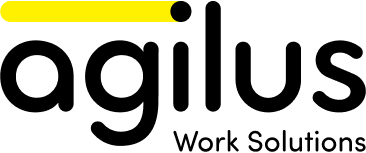Key Highlights
- 93% of employers value critical thinking more than a university degree (AAC&U, 2024).
- Ranked among the top three future skills by the World Economic Forum (2025).
- Critical thinking helps employees evaluate data, anticipate challenges, and make better decisions in fast-changing environments.
- It’s essential in the Fourth Industrial Revolution, where technology and information evolve faster than ever.
- Employers who hire strong critical thinkers gain adaptability, foresight, and innovation across teams.
What Is Critical Thinking — and Why It Matters
In a world of information overload, the ability to think clearly, question assumptions, and make reasoned judgments is more valuable than ever.
The University of Western Ontario defines critical thinking as “the ability to think clearly and rationally about what to do or what to believe. It includes the ability to engage in reflective and independent thinking.
Critical thinkers aren’t walking encyclopedias. They’re problem-solvers who can interpret complex data, weigh outcomes, recognize bias, and pivot when new information emerges. They don’t rely solely on what they know; they use that knowledge to find smarter paths forward.
The Skill Employers Value Most
Talent Canada reports 84% of Canadians believe companies should prioritize skills when hiring over requiring formal degrees. Similarly, a 2024/25 skills survey shows 87% of HR leaders expect new hires to bring critical thinking. bebrainfit.com lists critical thinking among the most in-demand skills worldwide — ahead of creativity and communication.
The World Economic Forum’s Future of Jobs Report (2025) also identifies critical thinking and complex problem-solving as top priorities for thriving in the Fourth Industrial Revolution — the era defined by the fusion of digital, physical, and biological systems.
This revolution began decades ago but accelerated during the pandemic, when digital transformation reshaped how we work, learn, and live. Today’s “knowledge economy” rewards those who can analyze data, connect ideas, and make decisions that adapt to disruption.
What Critical Thinking Looks Like at Work
Critical thinking shows up in everyday decisions — from boardrooms to factory floors.
- A triage nurse prioritizes patients based on urgency and available resources.
- A construction engineer evaluates which materials balance safety, cost, and sustainability.
- A logistics manager redesigns a warehouse layout to maximize storage and reduce delays.
- An attorney weighs evidence, assesses risk, and strategizes the best legal route.
- An accountant interprets complex tax codes to minimize costs ethically and effectively.
These examples have one thing in common: they rely on analysis, judgment, and foresight.
Why Critical Thinking Is the Cornerstone of the New Work Era
The speed and scale of change across industries are unprecedented. From AI to climate disruption, professionals are constantly navigating new challenges. In this environment, critical thinking is how we keep pace.
It enables employees to evaluate diverse data sources, anticipate outcomes, and make strategic decisions that align with business goals. For employers, critical thinkers are invaluable — they identify risks early, spot opportunities others miss, and help organizations pivot with confidence.
In short, critical thinking is the engine of agility. It keeps teams from reacting emotionally and helps them act intelligently.
The Benefits of Critical Thinking for Employers
Companies that cultivate critical thinking gain a distinct competitive edge. The benefits include:
- Better problem-solving: Employees can see multiple angles and generate better solutions.
- Clearer communication: Teams articulate reasoning, not just conclusions.
- Innovation: Critical thinkers challenge assumptions and find creative ways forward.
- Continuous improvement: They recognize process inefficiencies before they become costly.
- Market foresight: Critical thinkers connect dots between data, competitors, and consumer trends.
These qualities are why organizations increasingly assess for critical thinking in interviews, leadership programs, and succession planning.
How to Strengthen Your Critical Thinking Skills
Critical thinking can be learned and refined like any muscle. It starts with awareness — knowing how you think.
- Be self-aware. Recognize how your values and experiences shape your assumptions.
- Understand your thought process. Slow down and observe how you form conclusions.
- Practice active listening. Absorb details before evaluating or responding.
- Ask great questions. “What’s another way to look at this?” or “What might I be missing?”
- Evaluate evidence. Check sources, validate facts, and look for counterpoints.
- Reflect before deciding. Pause, step back, and consider consequences.
- Develop foresight. Anticipate outcomes and think two or three moves ahead.
- Seek feedback and mentors. Challenge your reasoning — and be open to critique.
Indeed.com also recommends engaging in team-building exercises and leadership opportunities where problem-solving and conflict resolution push your thinking further.
How Critical Thinking Supports Your Career
Critical thinking is not only a workplace skill — it’s a life skill. It helps you:
- Make better financial, personal, and career decisions.
- Distinguish fact from misinformation in an age of AI and social media.
- Adapt to changing roles, technologies, and business models.
- Communicate ideas clearly and confidently in interviews and presentations.
Employers view strong critical thinkers as future leaders — people who bring clarity, logic, and balance to fast-moving situations. For job seekers, showcasing examples of analysis and decision-making on your résumé can make your profile stand out.
Common Myths About Critical Thinking
| Myth | Reality |
| “Critical thinking means being critical of others.” | It’s about analysis and logic, not negativity. |
| “You need a high IQ to think critically.” | It’s a learned process, not an innate talent. |
| “It slows down decision-making.” | It speeds up better decisions by reducing rework and risk |
| “It’s only for leadership roles.” | Every employee benefits from clear, structured thinking. |
Critical thinking is the soft skill that keeps pace with a fast-changing world. It’s how we filter noise from knowledge, connect facts to insight, and make better decisions under pressure.
Whether you’re managing a project, leading a team, or just starting your career, thinking critically will set you apart — and prepare you for whatever comes next in the Fourth Industrial Revolution.
Conclusion
Critical thinking is the soft skill that keeps pace with a fast-changing world. It’s how we filter noise from knowledge, connect facts to insight, and make better decisions under pressure.
Whether you’re managing a project, leading a team, or just starting your career, thinking critically will set you apart — and prepare you for whatever comes next in the Fourth Industrial Revolution.
About Agilus Work Solutions
For nearly 50 years, Agilus has served our candidate and employer networks, connecting job seekers with meaningful opportunities. We place nearly 10,000 job seekers in roles every year in Engineering, Technology, Professional/Office, and Light Industrial roles. Check out our open roles on our job board, create a job alert or build a profile so one of our 80+ recruitment professionals can find you quickly when a role becomes available. Please follow us on LinkedIn, Facebook, Instagram and X for job-seeking tips and new roles.
FAQs
Q1: How do employers assess critical thinking?
Through scenario-based interviews, problem-solving questions, and behavioural examples of how you’ve handled complex decisions.
Q2: Can critical thinking be taught?
Yes. It improves with exposure to diverse viewpoints, reflective practice, and structured reasoning exercises.
Q3: What’s the difference between critical thinking and problem-solving?
Problem-solving applies logic to reach a goal; critical thinking examines why that goal makes sense in the first place.
Q4: How can I show critical thinking on my résumé?
Include examples of analysis, evaluation, and decision-making — “Assessed X to determine Y, resulting in Z.”

